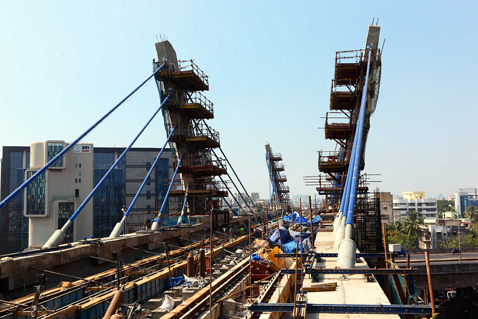
India requires an investment of at least $640.2 billion until 2031 to provide basic infrastructure and services to its growing urban population, according to a recently released report by the World Economic Forum in collaboration with Accenture.
Titled ‘The Future of Urban Development & Services: Urban Development Recommendations for the Government of India,’ the report estimates the country’s urban infrastructure and services funding gap at $80-110 billion.
India has the second largest urban community in the world with an urban population of 410 million but the provision of basic urban services is poor. Though the country’s present urbanisation rate is relatively low at 32 per cent, migration from rural areas to cities has been taking place at a rapid pace. The urban population is forecasted to almost double to 814 million between 2014 and 2050. Providing basic infrastructure and services to the growing urban population as well as improving the standard of living of the existing urban population poses a major challenge to the government.
The Bharatiya Janata Party led National Democratic Alliance government at the Centre has already announced a number of urban development policies and initiatives. The Right to Fair Compensation and Transparency in Land Acquisition, Rehabilitation and Resettlement (Amendment) Bill, 2015, the focus on setting up five industrial corridors and the launch of the ‘Make in India’ campaign and 100 smart cities programme are all aimed at fostering urban development.
The WEF report addresses the issue of how India can unlock the full potential of urban regeneration and development to enable inclusive growth with the participation of the world’s leading private sector organisations. It makes three strategic recommendations for the Indian government to advance the debate around the newly announced policies and initiatives on urban development.
The first recommendation calls for integrating spatial planning at all governmental levels — national, state and city. It points out that the primary goal of spatial planning is to integrate housing, strategic infrastructure and urban infrastructure, and improve national and local governance in the context of urban development. The second recommendation seeks creation of a stable policy framework for private investment in urban infrastructure followed by identification of the various tools that are available such as public-private partnerships to enable investments in strategic infrastructure and urban development. The third recommendation stresses on creation of institutions to stimulate capacity building and attract talent in order to grow businesses.
The report also incorporates a few case studies to provide an insight into some of the urban development initiatives of other countries.











